How to Effectively Do Waste Recycling at Home?
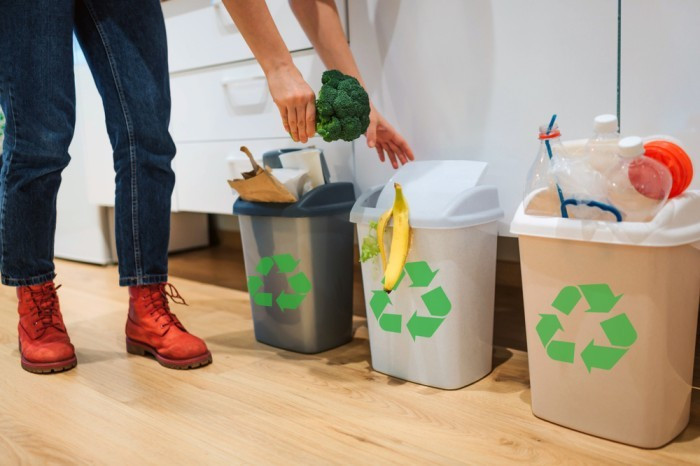
Domestic garbage management is a must these days. The most effective methods for managing your household trash include waste reduction, reuse, recycling, and composting. Also it is important to know how to effectively do waste recycling at home.
Ways to Effectively Do Waste Recycling at Home
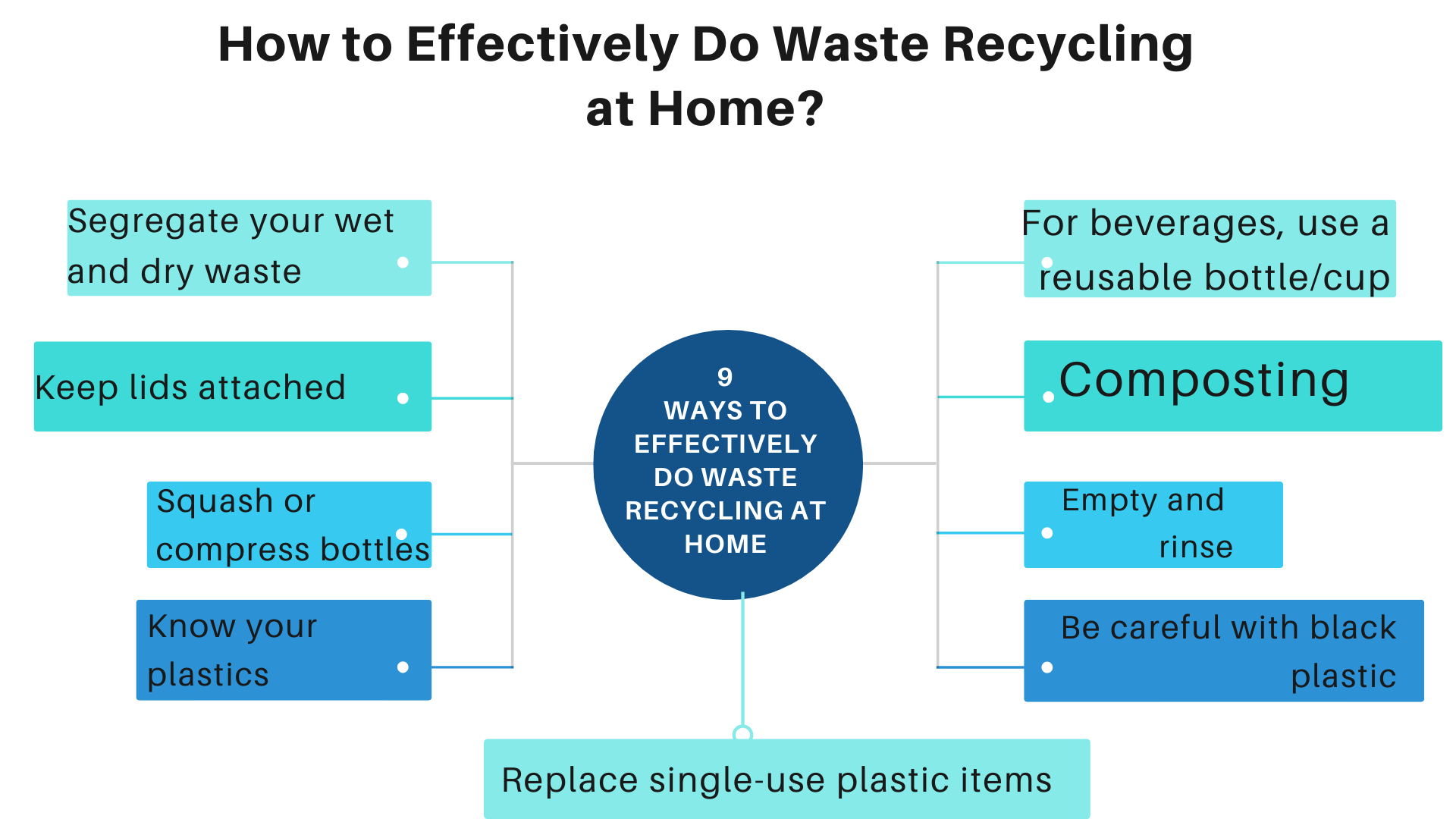
Given below are some ways you can effectively recycle your household waste:
1. Segregate your wet and dry waste
Don't just throw everything out together. Make provisions for the disposal of both wet and dry waste. Fruit and vegetable peels, tea bags, and leftover food are examples of wet waste. This includes wood, glass, metal, and other dry debris.
Dry garbage is often disposed of in landfills, but moist waste can be recycled into your compost container. The environment benefits from trash separation.
2. Keep lids attached
Even though the lid and the jar or bottle are made of different materials, the lid must still be attached to the main thing. Because lids are thin and light, they easily slip through sorting gaps that collect contamination during the recycling process.
If you leave the lid on, the recycling centre will have to remove it manually before it can be recycled correctly elsewhere. Lids also keep other objects from getting stuck inside bottles or jars.
3. Squash or compress bottles
Before putting plastic bottles out for recycling, squash them. This not only saves space (and thus reduces their carbon footprint), but it also prevents them from rolling off the sorting machine conveyor belts.
4. Know your plastics
Plastics are not all handled the same. Resin numbers 1 through 7 identify rigid plastics that are recyclable. The higher the number, the less recyclable the item is in general. Plastics 1 and 2 are generally accepted by most recycling centres. It becomes more difficult after that.
A lot of plastic is also not recyclable at the curb. Plastic bags and films are not recyclable. Furthermore, anything that rips, such as paper, cannot be recycled.
5. For beverages, use a reusable bottle/cup.
Do you use your reusable water bottle on a regular basis? You can put that reusable bottle to good use while also saving money and reducing waste.
You can limit your chances of acquiring more expensive beverages on the fly if you bring your own water. This will eliminate the single-use containers. While most cans and bottles can be recycled, they take a lot of energy to manufacture, ship to the bottling facility and then sell in stores.
6. Composting
Composting your organic waste is an eco-friendly waste management strategy. Compostable materials include fruit and vegetable waste, eggshells, coffee grounds, grass clippings, and leaves.
Composting takes more time and work than the other lifestyle modifications suggested, but it will pay off. The compost could be ready in 3 to 12 months, depending on the conditions. You'll save money on fertilisers, and your yields will likely improve if you cultivate your own vegetables. The organic matter will also work like a sponge, allowing your plants to absorb more water, saving you money and time.
7. Empty and rinse.
Empty your recycle bin and give it a quick rinse if there's any leftover food trash. They don't have to be sparkling, but a half-filled yoghurt pot or baked bean tin, for example, might contaminate porous goods like paper and cards in the same recycling pile, rendering everything unrecyclable.
8. Be careful with black plastic
Even if your municipality claims to collect plastic waste, black plastic, such as that used in microwaveable dinners and pre-packaged goods, is unlikely to be included. Because these trays are normally coloured with carbon black, they are undetected by sorting equipment at recycling facilities, and they are simply discarded or burnt. Avoid buying them in the first place if at all possible.
9. Replace single-use plastic items
While single-use plastic objects are common in our lives, their widespread use has the potential to harm the environment. Decomposition of a plastic item, for example, can take up to 1000 years.
Many countries have made a commitment to eliminate single-use plastics for good. You, too, may cultivate a healthy habit by substituting eco-friendly alternatives for plastic things. Start by switching to biodegradable toothbrushes, biodegradable cotton buds, and reusable biodegradable bamboo straws.
Conclusion
Recycling glass, metal, textiles, and some plastics are the key takeaway for better waste management. Composting leftover food prevents it from decomposing in the soil and producing dangerous methane gas. Use old clothes for wiping, washing, and other household tasks, and avoid highly packaged foods.
We could eliminate the piles of debris on our street corners, in our oceans, and in our water bodies if every homemade effort to manage domestic waste. For a more environmentally friendly tomorrow, make an effort to manage your household trash today by following the above methods and effectively do waste recycling at home.
If you want to make your waste management process easier, Klean Keepers can help you. Klean Keepers provides all kinds of cleaning services in and around London. Contact us to know more about for all your domestic cleaning needs.
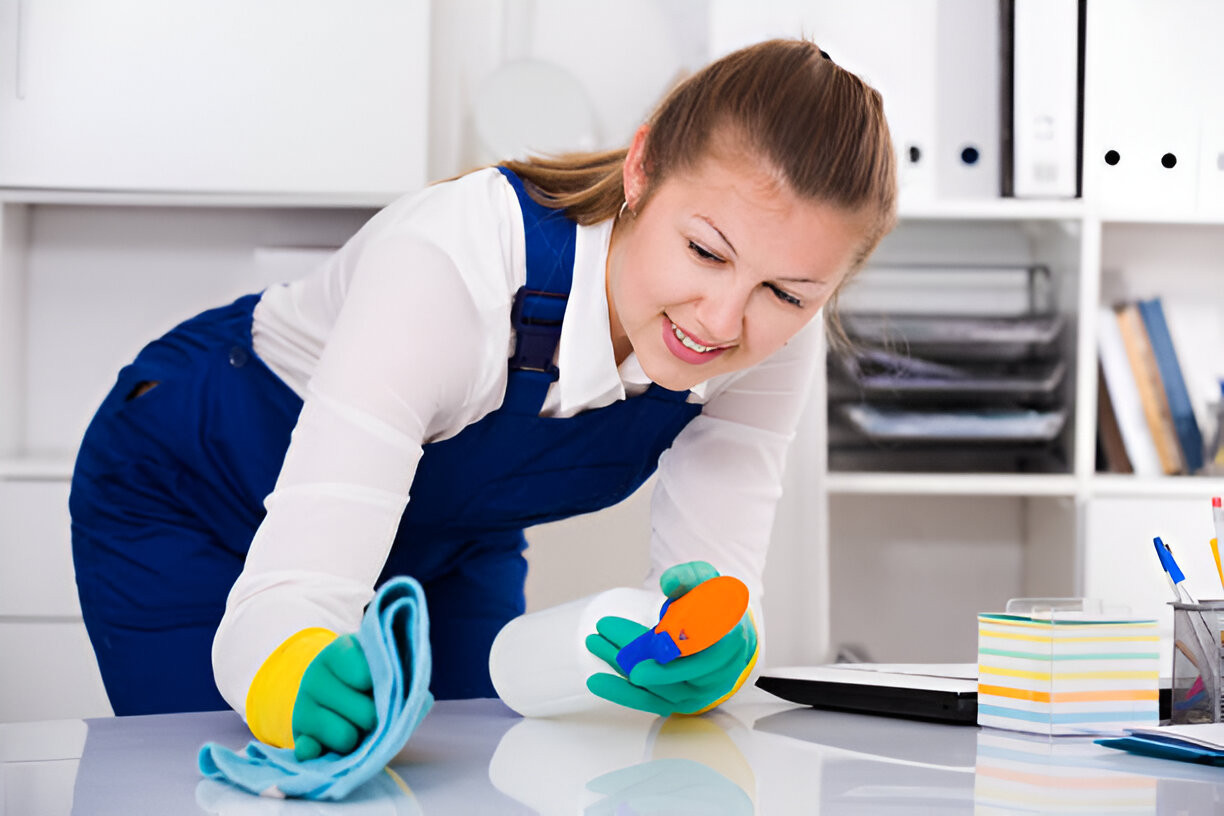
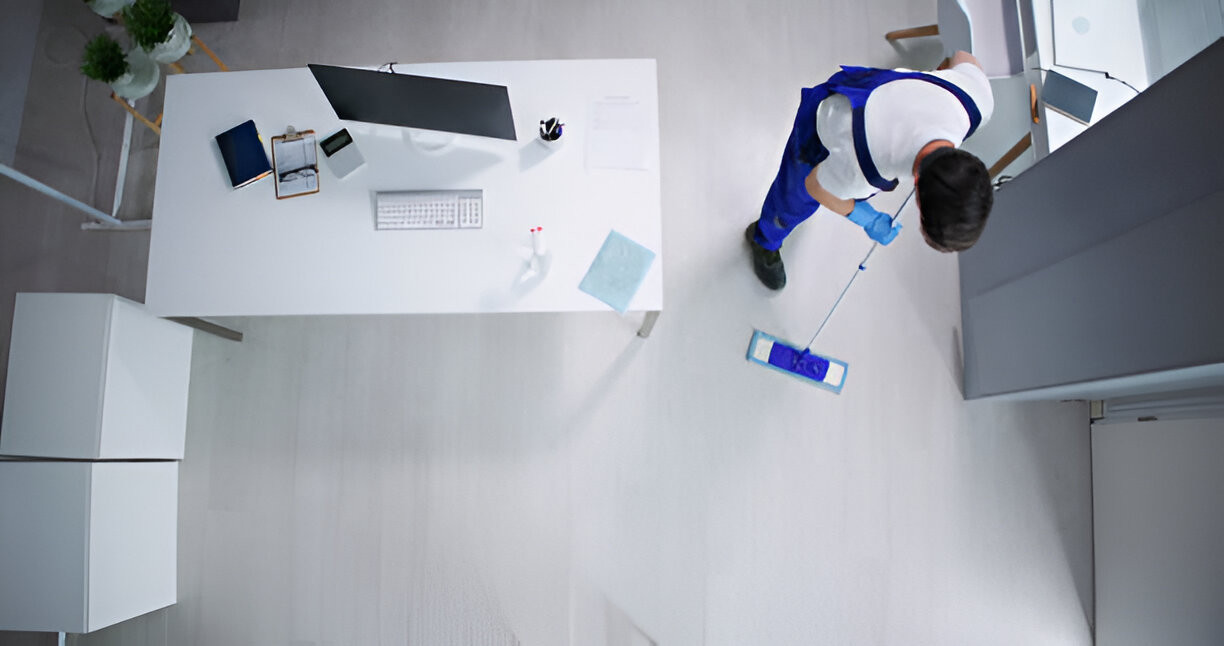
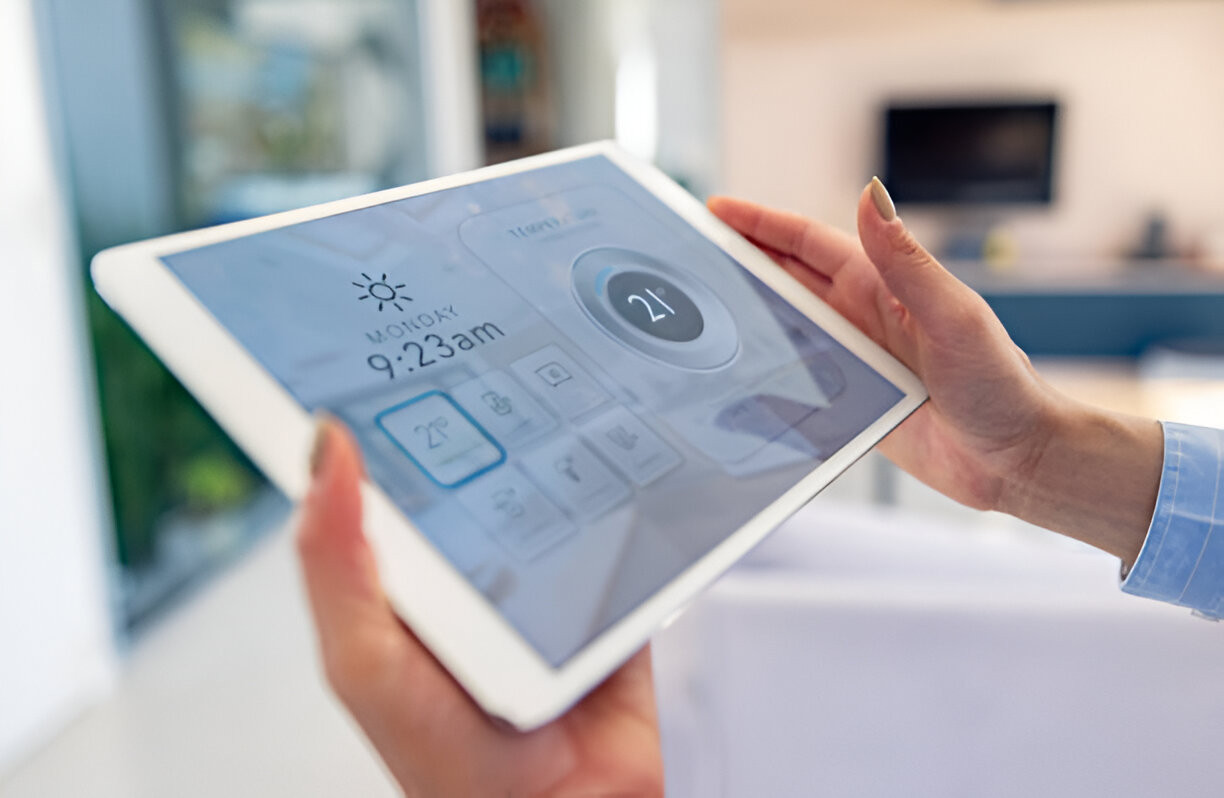

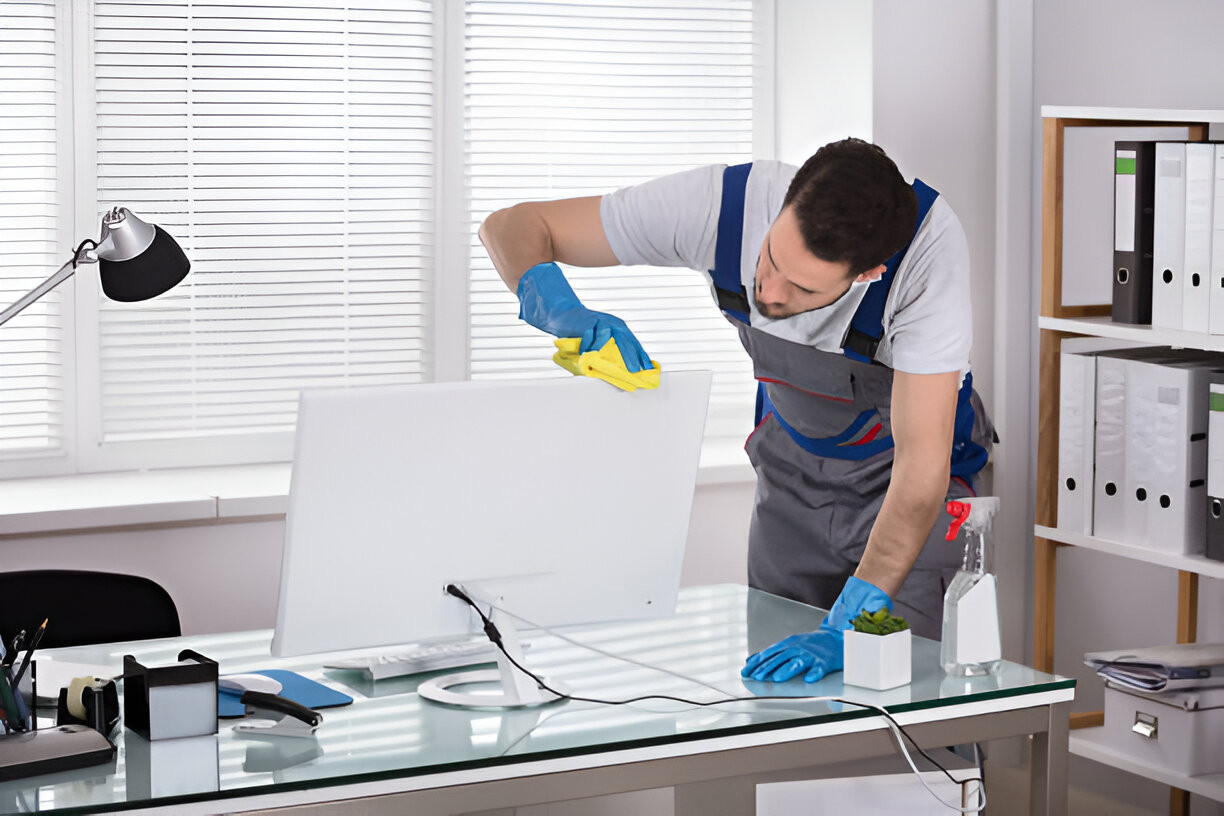
600a74899aac4.png)